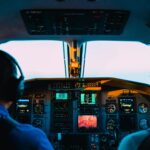
Aviation is an exciting career path. You get to work in a diverse and innovative space where you can meet people from different countries and learn new things every day. The aviation industry connects people and businesses to the rest of the world and delivers and supplies essential goods and services.
Aviation is one of the largest industries in Australia employing more than 93,000 people. The aviation industry doesn’t just refer to pilots but also includes aircraft manufacturers, aircraft maintenance, air traffic control, in-service operation and safety regulation. The Australian economy relies heavily on its aviation industry for international trade and tourism.
If you’re thinking about working in aviation and researching where to study, here are the top 7 reasons to study aviation in Australia.
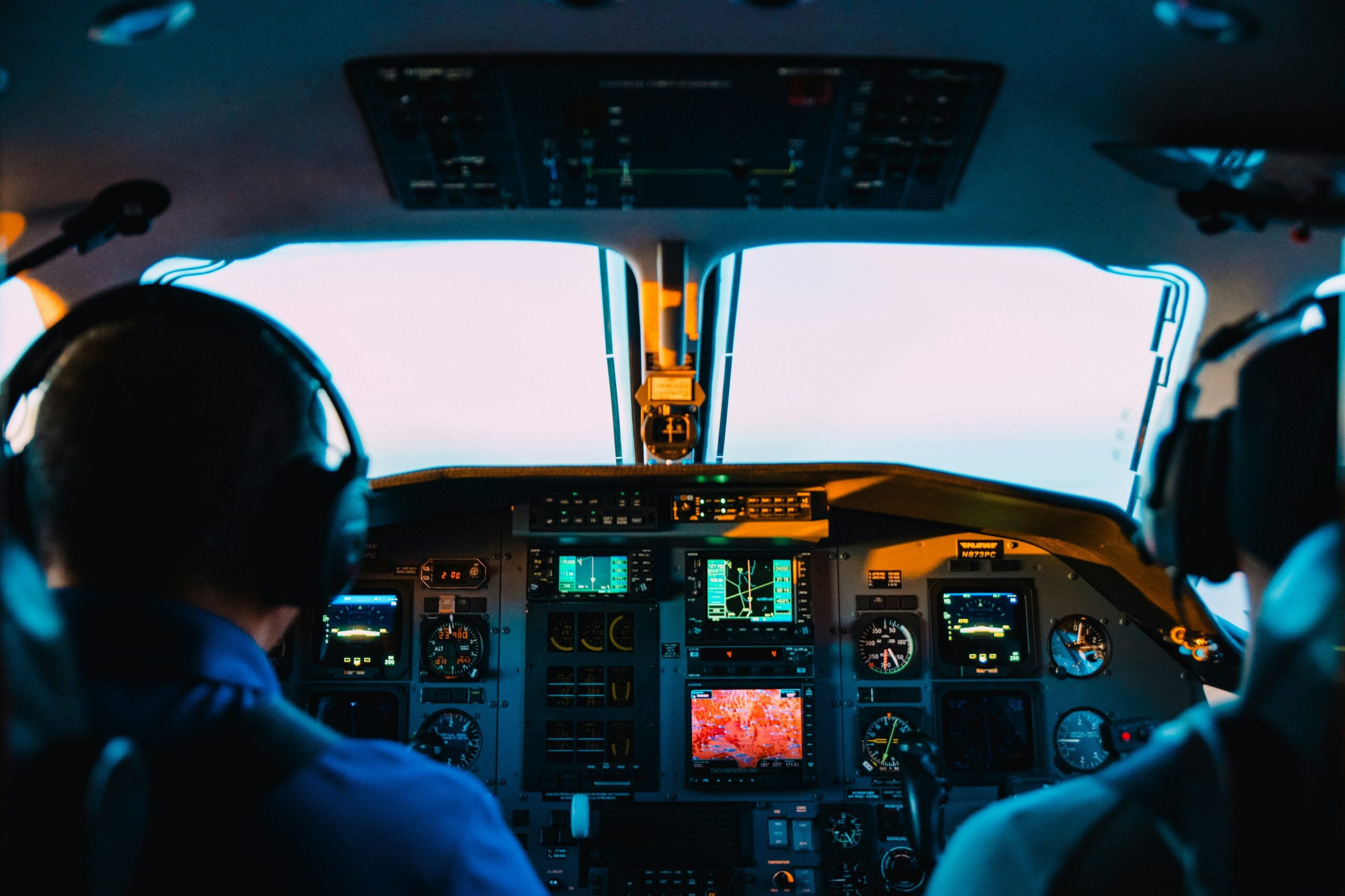
1. Receive a high-quality education
Australian education providers are known for their high-quality education and training. Several universities are ranked in the top 100 globally.¹ Australia has a rigorous aviation regulatory framework to ensure that your degree delivers training according to international aviation standards.
Australia’s top aviation schools are accredited by the Civil Aviation Safety Authority (CASA) which is a government body that ensures aviation safety in Australia and has a reputation for excellence in aeronautical education.
Universities and aviation schools offer a wide range of specialisations such as pilot training, aviation management, air traffic control, aerospace engineering and aviation safety. The curriculum not only provides you with theoretical knowledge but also hands-on learning experiences and opportunities to develop soft skills such as leadership, interpersonal skills, critical thinking and situational awareness.
2. Become a graduate in-demand
In the post COVID-19 era, the Australian aviation industry has rebounded strongly. Every year, many national and international flights arrive and depart from each capital city due to the increase in travel, trade and e-commerce.
Airlines are introducing new routes and expanding their operations. For example, the biggest airline in Australia, QANTAS, has announced direct flights to London and New York that will be available from early 2027. In New South Wales, a new airport in Western Sydney is currently being built and will provide international, domestic and freight services. It is due to be open by the end of 2026.
With a shortage of aviation personnel in Australia, you will be a graduate in-demand. By 2026, employment is this sector is predicted to grow by 10.5%.
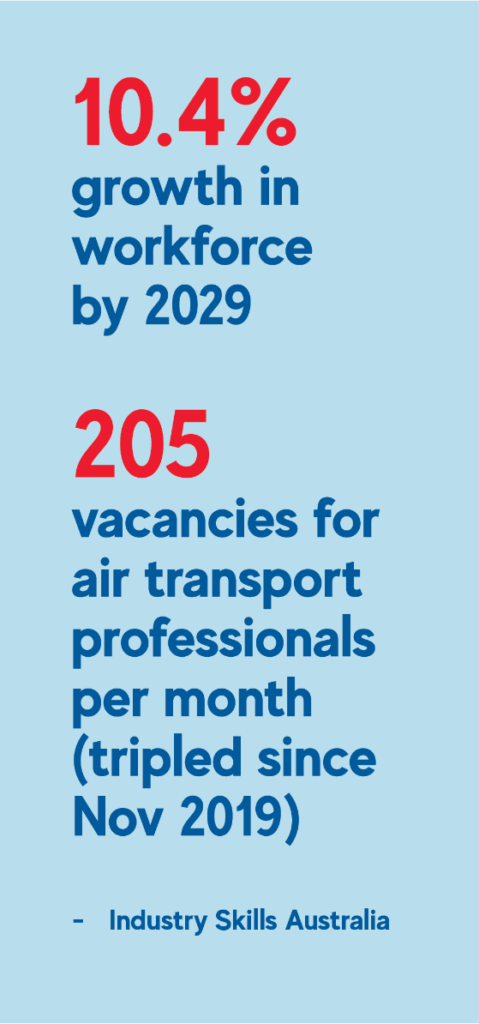
3. Practise in state-of-the art facilities
Australian universities and aviation schools have state-of-the art facilities for learning and practical training. If you would like to become a pilot, you can put theory into practise in modern aircraft simulators and gain hours of observational and real-life flying experience in a single or multi-engine aircraft. This helps you develop the ability of making calculated decisions in real-world flying situations. Australia’s aviation industry is home to pilot training facilities from international industry leaders such as Boeing and Airbus.
4. Learn from industry
Many Australian education providers have strong industry partnerships that provide you with updated curriculum, valuable career advice and real-world experience. For example, Adelaide University has a partnership with Flight Training Adelaide, a world-class school for airline pilot training that collaborates with Cathay Pacific and STARLUX airlines.
Industry collaborations often lead to internships, job placements and networking opportunities giving you first-hand experience. Your lecturers may be people from industry who can share the most current and relevant information about working in aviation. As a result, you will be better prepared for the workforce.
5. Choose from a wide range of career paths
In Australia, you can choose from a wide range of career paths in the aviation field within commercial aviation, defence, aviation management and engineering. You could be a pilot for a commercial or private airline, work on the ground in traffic control and security or improve aircraft designs as an engineer. Australian universities include a range of electives in your degree for you to choose from to help you decide what interests you the most.
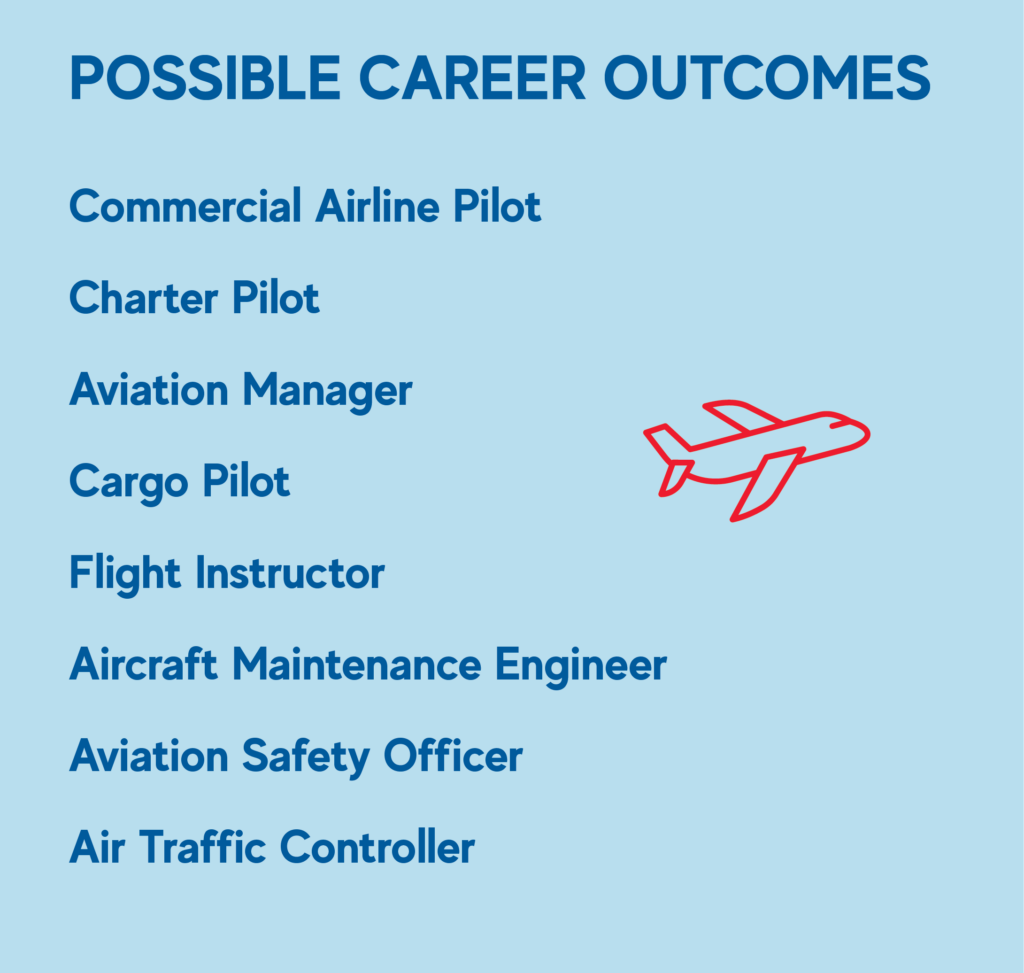
6. Receive great student support
As an international student, settling into a new country and studying in a new learning environment can be challenging. Australian universities have student support teams to help you resolve any academic or personal issues that may arise during your course of study. They can help you with:
- Orientation and enrolment
- Academic support – study skills, writing skills, maths learning
- English language support
- Connection to on-campus events, clubs and societies
- Career advice and
- Health and wellbeing resources and counselling.
7. Study in one of the Top 10 most liveable countries in the world
Australia is ranked in the Top 10 most liveable countries² in the world due to its high quality of education, high standard of living, stability, infrastructure and excellent healthcare. The country has good weather, natural beauty, a wide variety of food from around the world and exciting arts and cultural events throughout the year.
Australia is a very multicultural country with 1 in 4 Australians being born overseas³. Almost half a million international students were enrolled at Australian universities in 2024. Studying with students from all around the world will allow you to experience cultural diversity and learn new perspectives.
¹QS World University Rankings 2025
²UN Human Development Index 2023-24
³abs.gov.au
The University of Adelaide College is your pathway provider to Adelaide University. Learn more about our Foundation Studies Program; your pathway into the Bachelor of Aviation majoring in Pilot or Management. Our College Services team are here to help you settle into our College and offer you any academic or career guidance you may need.
